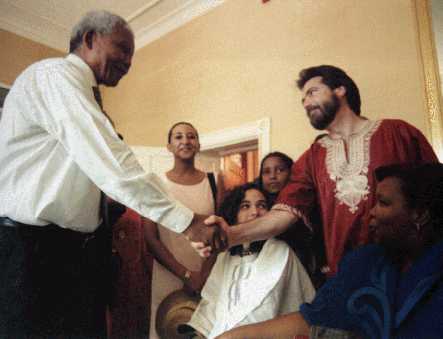Creole is a term that emerged out of Spanish and French rooted in the word ‘create’. It simply means ‘locally born’ as distinct from other terms with racial overtones such as Mullato, Mestis, Malao, Half-caste, Quadroon etc. The first generations of slaves locally born in the Cape were referred to by the by-name van Cabo, or van der Kaap, or as Cape Creoles. When one looks at slave records, new slaves had names such as Jan van Mallabar, Sara van Java and Louis van Angola, - local borns are all 'first name' van der Kaap.
The term Creole and its cognates in other languages — such as crioulo, criollo, créole, kriolu, criol, kreyol, kriulo, kriol, krio, etc. — have been applied to people in different countries and epochs, with rather different meanings.
Those terms are almost always used in the general area of present or former colonies, and originally referred to locally-born people with Slave and European ancestry, or European ancestry. However, this original meaning has often changed over the last five centuries, and in most cases the term has come to designate some distinct local ethnic group — often, but not always, of mixed Slave, European and native ancestry. The African Islands (Cabo Verde, Mauritius, Zanzibar, Madagascar etc) and mainland centres where Slavery has left strong markers all have Creole populations and Creole languages. Here Creoles are generally people of mixed ancestry.
In the Caribbean and Latin American centres where Slavery has left strong markers, Creole in some places refers to mixed descendants of Slaves and Colonists, and in others to the white descendants of colonists.
Of course in the United States where Americans believe they created the meaning of everything, the term in Louisiana has a strong white colonial French definition. US academia will swear blue-murder that there is no other meaning to the term, even although there are many more countries around the world where the term is used differently. But in fact even in the USA we have contestation around the term Creole, with various groups laying claim to the exclusive use of the term. There are four different meanings in Louisiana involving French Creoles, Creoles of Colour (mixed), Black Creoles (descendants of Slaves), and some strictly use the term for people of New Orleans (where the former 3 definitions also arise and still conflict).
In the greater world where Creolisation has taken place, outside of the borders of the USA, people have simply found it best to ignore the narrow Louisiana and USA definitions, and get on with life.
Creolisation occurred in many countries throughout the world where new languages, music, cuisine, dress, religious practices and other cultural forms came into creation as hybrids through the mixing of native, Slave and European cultures.
In South Africa we have strong traditions of Creolisation where our particular history defines its meaning and the name of our continent has impacted strongly on identity. Hence terms such as African Creole, Afrikaner, Afrikander and the less acceptable though more commonly used 'Coloured', emerged at different times to refer to mixed descendants of Slaves, Indigenes and Europeans. The term Afrikaner and Afrikaans came to be used by some locally born European descendants.
Subscribe to:
Post Comments (Atom)


No comments:
Post a Comment